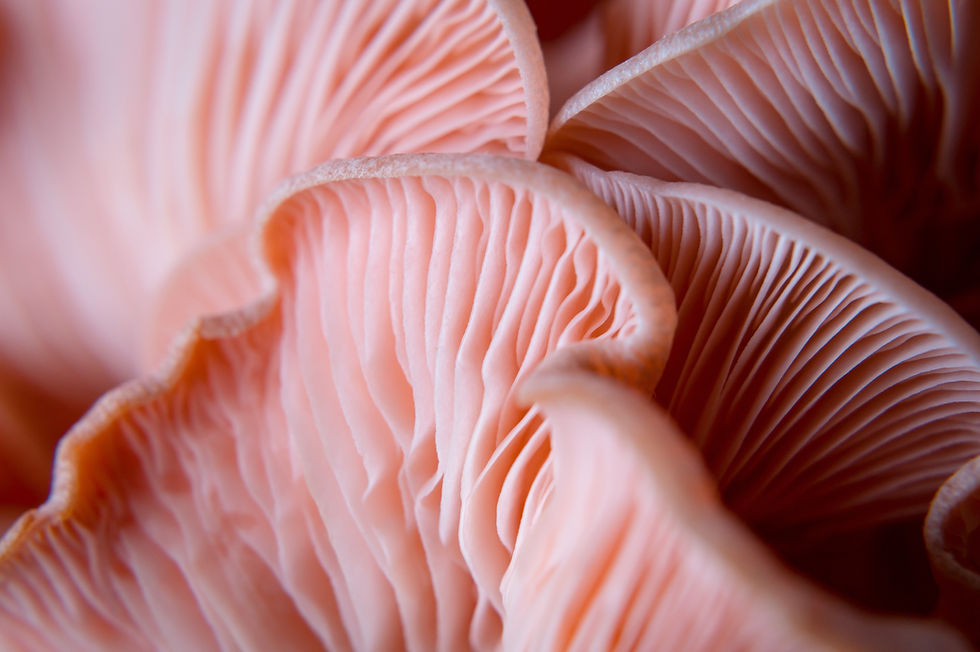The Hidden Impact of Chronic Stress: How It Affects Women's Hormones, Aging & How Adaptogens Can Help
- sophieprager
- Apr 24
- 3 min read

Stress is an inevitable part of life, but chronic stress is an insidious force that deeply impacts women's hormones, aging, and overall well-being. Unlike acute stress, which the body is designed to handle, long-term, subtle stressors can quietly wreak havoc over time—leading to hormone imbalances, premature aging, and a cascade of health issues.
The Different Faces of Stress: It’s Not Just in Your Head
Chronic stress isn’t always obvious. It’s not just the pressure of deadlines or major life events—it can be subtle, persistent, and disguised as “normal” life. Here’s what stress can look like:
🔹 Emotional stress – Anxiety, overthinking, or feeling overwhelmed all the time. 🔹 Physical stress – Poor sleep, overexercising, or chronic pain.
🔹 Nutritional stress – Blood sugar imbalances, restrictive dieting, or inflammatory foods.
🔹 Environmental stress – Toxins from skincare, plastics, or pollutants.
🔹 Hidden stressors – Unresolved trauma, people-pleasing, or always being “on.”
Even if you don’t feel stressed, these silent stressors keep your nervous system in a constant state of fight-or-flight, draining your body’s reserves and pushing hormones out of balance.
How Chronic Stress Disrupts Women's Hormones & Speeds Up Aging
Your body isn’t designed to be in survival mode all the time. When stress becomes chronic, it:
🔥 Depletes Progesterone – High cortisol (your stress hormone) “steals” from progesterone, leading to PMS, irregular cycles, low libido, and perimenopause symptoms.
🔥 Exhausts the Adrenal Glands – Long-term stress overworks your adrenal glands, leading to fatigue, burnout, and trouble recovering from illness.
🔥 Worsens Blood Sugar & Weight Gain – Chronic stress spikes insulin, leading to belly fat, sugar cravings, and energy crashes.
🔥 Accelerates Aging – Stress increases inflammation, which breaks down collagen and elastin, leading to wrinkles, sagging skin, and brittle hair.
🔥 Disrupts Sleep – A dysregulated nervous system makes it hard to unwind at night, impacting melatonin production and deep rest.
🔥 Weakens Gut Health – Stress alters gut bacteria, increases bloating, and triggers digestive issues like IBS.
Adaptogens: Nature’s Stress Resilience Support
Adaptogens are a powerful class of herbs that help your body adapt to stress, restore balance, and build resilience. They don’t force a specific action but rather work with your body’s unique needs to support hormones, energy, and overall vitality.
🌿 Ashwagandha – Calms the nervous system, lowers cortisol, and supports sleep.
🌿 Rhodiola – Boosts energy, mental clarity, and stamina without overstimulation.
🌿 Reishi Mushroom – Nourishes adrenal health, strengthens immunity, and promotes relaxation.
🌿 Holy Basil (Tulsi) – Supports blood sugar balance, uplifts mood, and enhances focus.
🌿 Shatavari – A female reproductive tonic that supports oestrogen balance and vitality.
Why You Need a Personalized Approach
While adaptogens are powerful, not all herbs are right for every person. Your unique hormone picture, stress levels, medications and health history determine which herbs will be most effective for you.
This is why I always recommend working with a practitioner to ensure you’re getting the right herbs, dosages, and support for your specific needs.
Feeling the Effects of Stress? Let’s Create a Plan for You
If you’re dealing with fatigue, hormone imbalances, mood swings, or stress-related symptoms, it’s time to take action. You don’t have to feel this way forever.
💛 Book a 1:1 consultation today to get personalized guidance on stress recovery, hormone support, and the right herbal medicine for YOU.





Comments